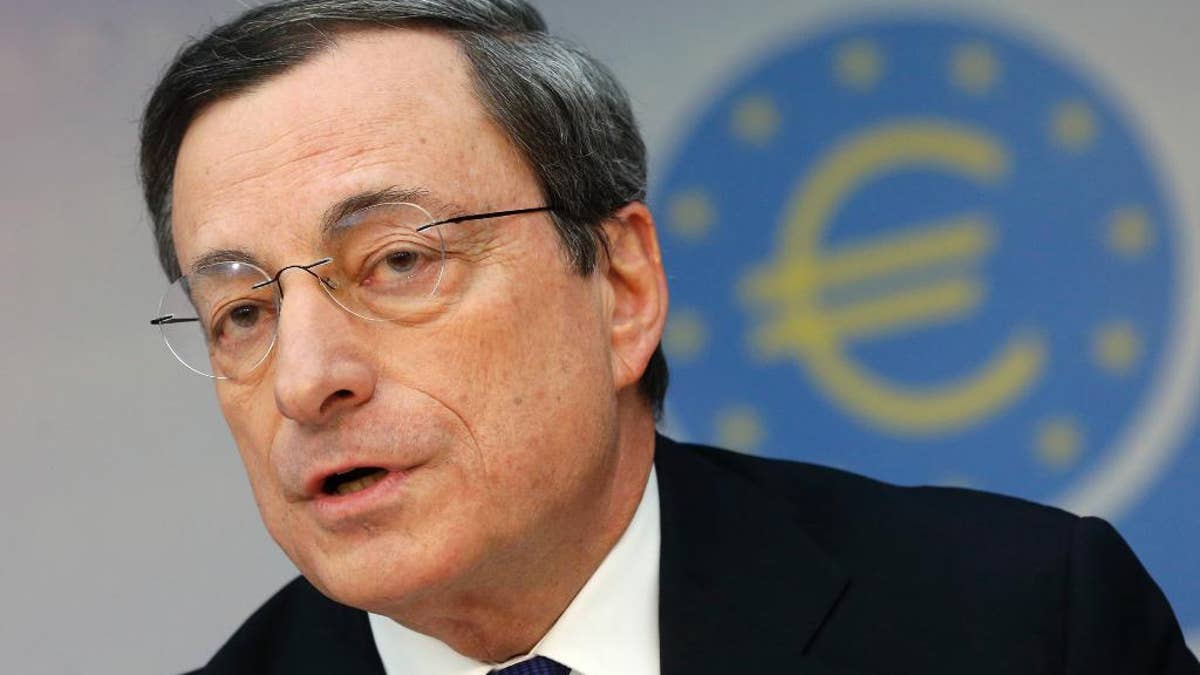
FILE - In this Thursday, March 6, 2014 file photo President of European Central Bank Mario Draghi speaks during a news conference in Frankfurt, Germany, following a meeting of the ECB governing council. The European Central Bank launched its new stimulus program aimed at getting banks to lend more in a slack economy — but saw less demand than expected for its offering of super-cheap credit. The central bank for the 18-country eurozone on Thursday Sept. 18, 2014 handed out euro82.6 billion (US$107 billion) in ultra-cheap loans to 255 banks.(AP Photo/Michael Probst, File) (The Associated Press)
FRANKFURT, Germany – The European Central Bank launched its new stimulus program aimed at getting banks to lend more in a slack economy — but saw less demand than expected for its offering of super-cheap credit.
The central bank for the 18-country eurozone on Thursday handed out 82.6 billion euros ($107 billion) in ultra-cheap loans to 255 banks.
Demand undershot even the low end of expectations. Market estimates had varied, from around 100 billion euros to over 200 billion euros.
Banks pay only 0.15 percent annual interest for up to four years for the loans. The amount they can borrow depends on how much they loan to companies. That is intended to make sure the stimulus money gets into the economy and creates jobs.
The low uptake underlined the ECB's difficulty in getting its stimulus measure through to the larger economy. Many economists think the impact of the cheap loans — dubbed targeted longer-term refinancing operations, or TLTROs, pronounced "TELL-troes" — will have limited impact because companies see no reason to risk borrowing in such a slack economy.
The offering of the cheap loans is the first of eight in a program unveiled on June 4. Together with a further stimulus measure announced Sept. 4, they are part of a broader ECB effort to expand the amount of credit available in the economy. Slack growth and worrisome low inflation of only 0.4 percent have raised fears that the eurozone's recovery from a crisis over high government debt is stalling.
The eurozone economy showed no growth at all in the second quarter, after four quarters of unsatisfying growth.
